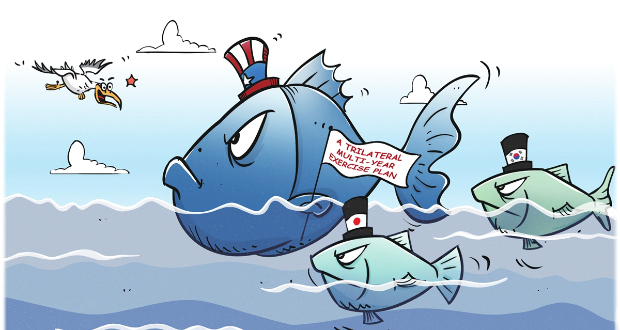Meeting in Rio de Janeiro, Japanese Foreign Minister Kamikawa Yoko, US Secretary of State Antony Blinken and South Korean Foreign Minister Cho Tae-yul exchanged opinions over China-related issues. During the meeting, which lasted about an hour, the trio had a "frank exchange of views" on China, a Japanese Foreign Ministry official said.
The three-way talks, Cho's first since assuming his post in January, took place on the sidelines of a foreign ministerial meeting of the Group of 20 major economies.
During the G20 meeting in Rio de Janeiro, Chinese Vice Foreign Minister Ma Zhaoxu met with Cho. The South Korean Ministry of Foreign Affairs stated that the two exchanged views on topics of mutual concern, such as the relationship between South Korea and China. Both sides agreed that the development of the South Korea-China relationship is very important, and that regardless of any issues that may arise between the two countries, close communication should be maintained, according to the South Korean Ministry of Foreign Affairs.
"Cooperation and coordination with our closest allies is more important than ever," Blinken said as he met with the other two foreign ministers.




